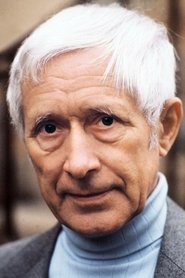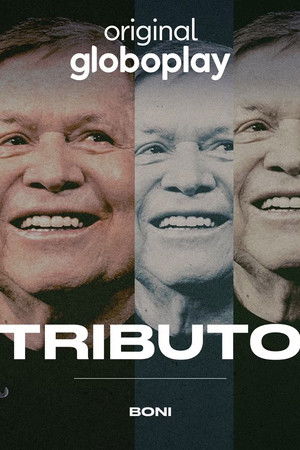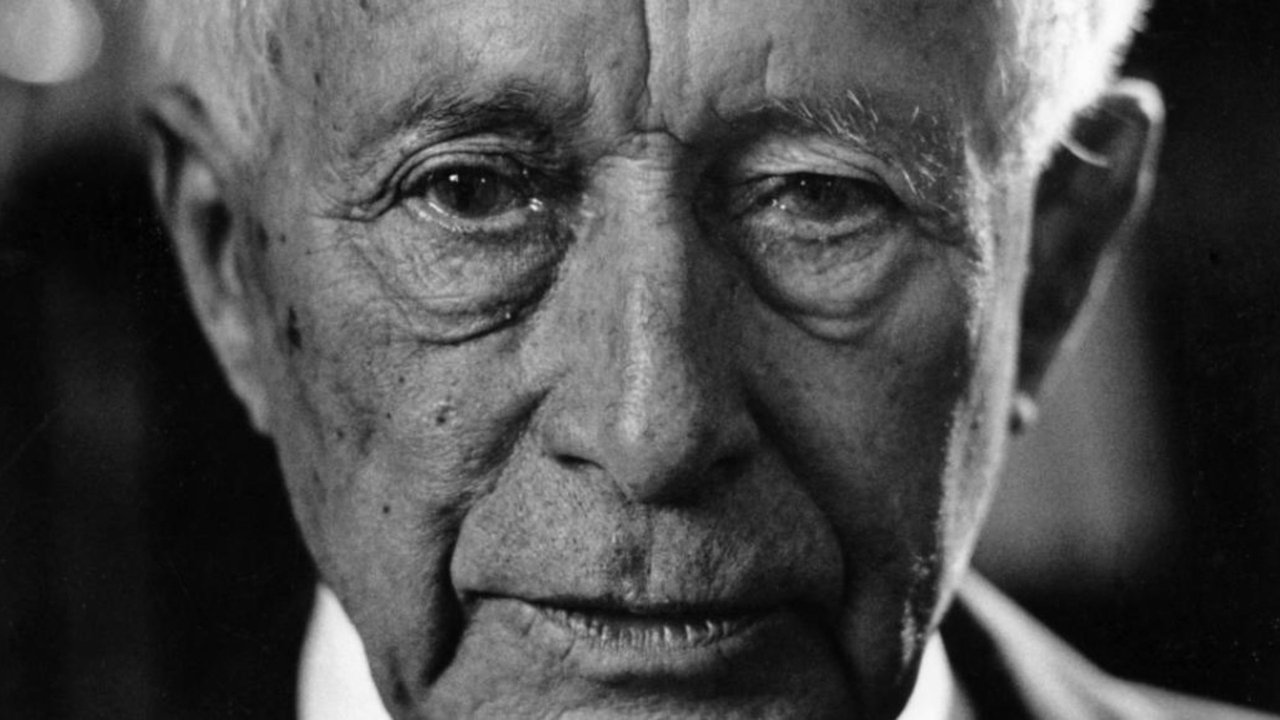
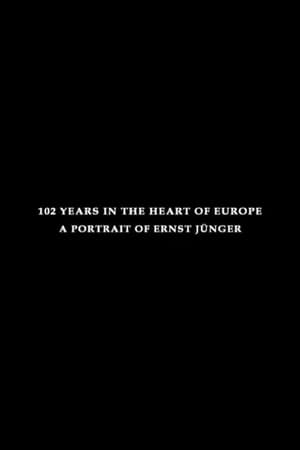
102 Years in the Heart of Europe: A Portrait of Ernst Jünger(1998)
102 Years in the Heart of Europe: A Portrait of Ernst Jünger (Swedish: 102 år i hjärtat av Europa) is a Swedish documentary film from 1998 directed by Jesper Wachtmeister. It consists of an interview by the journalist Björn Cederberg with the German writer, philosopher and war veteran Ernst Jünger (1895-1998). Jünger talks about his life, his authorship, his interests and ideas. The actor Mikael Persbrandt reads passages from some of Jünger's works, such as Storm of Steel, The Worker, On the Marble Cliffs and The Glass Bees.
Movie: 102 Years in the Heart of Europe: A Portrait of Ernst Jünger
Top 3 Billed Cast

102 år i hjärtat av Europa
HomePage
Overview
102 Years in the Heart of Europe: A Portrait of Ernst Jünger (Swedish: 102 år i hjärtat av Europa) is a Swedish documentary film from 1998 directed by Jesper Wachtmeister. It consists of an interview by the journalist Björn Cederberg with the German writer, philosopher and war veteran Ernst Jünger (1895-1998). Jünger talks about his life, his authorship, his interests and ideas. The actor Mikael Persbrandt reads passages from some of Jünger's works, such as Storm of Steel, The Worker, On the Marble Cliffs and The Glass Bees.
Release Date
1998-04-15
Average
10
Rating:
5.0 startsTagline
Genres
Languages:
DeutschsvenskaKeywords
Recommendations Movies
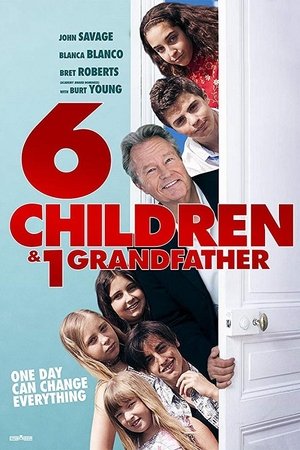 5.7
5.7Six Children and One Grandfather(en)
David McDoll is a selfish and wealthy man living an enviable lifestyle in his large villa and collecting fancy cars. However, his life is about to be changed forever when he inherits his six grandchildren. His glamorous lifestyle quickly becomes complete chaos. But he will learn a valuable lesson that teaches him about placing family first and discovering a newfound appreciation for life.
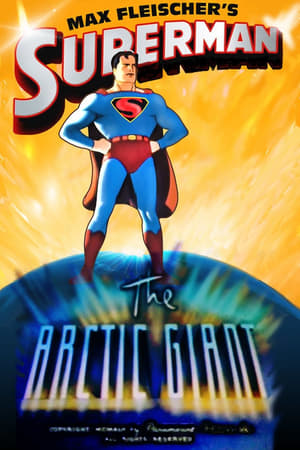 7.1
7.1The Arctic Giant(en)
A frozen Tyrannosaurus rex is found and put on display in a museum, but when he thaws out and revives, Superman has to stop his rampage!
 5.8
5.8Mobile Suit SD Gundam Mk II(ja)
Mobile Suit SD Gundam Mk. II delivers with more tongue-in-cheek humor than the first series. In "The Rolling Colony Affair," a colony is hosting a cabaret show featuring the girls of Gundam. But the show turns disastrous when men and mobile suits go crazy over the girls, sending the colony rolling out of control. A parody of the videogame RPG genre, "Gundam Legend" has Amuro, Kamille and Judau sent on a perilous quest to rescue the princess of the Zeta Kingdom from Char Aznable and his vicious Zeon MS forces.
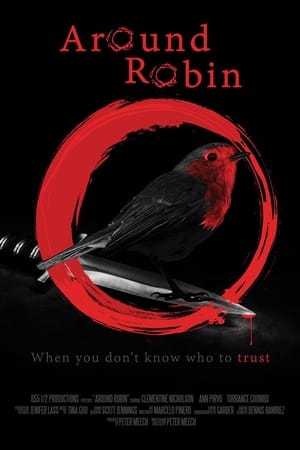 4.5
4.5Around Robin(en)
A young celebrity receives a letter from a mysterious stalker and develops catalepsy, a condition that paralyzes her whenever she feels threatened. After more letters arrive, suspicion falls on members of her inner circle, all of whom are dangerously obsessed with her.
 8.6
8.6Kamiusagi Rope x Boruto: Naruto Next Generations(ja)
A 3-way collaboration between Kamiusagi Rope, Boruto: Naruto Next Generations, and TOHO Cinemas. The purpose is to promote a new TOHO theater opening up in Ueno on November 4, 2017. The collaboration video will also be available to view in TOHO Cinemas in Tokyo, Kanagawa, Chiba, and Saitama from Ocotober 21 - December 1.
 7.1
7.1Godzilla: Tokyo S.O.S.(ja)
Mothra and her fairies return to Japan to warn mankind that they must return Kiryu to the sea, for the dead must not be disturbed. However Godzilla has survived to menace Japan leaving Kiryu as the nation's only defense.
 5.5
5.5Mobile Suit SD Gundam(ja)
A collection of short parodies of the Mobile Suit Gundam saga. Episode 1 pokes fun at key events that occurred during the One Year War. In episode 2, Amuro, Kamille and Judau fight over who runs the better pension when Char comes in to crash their party. Episode 3 is the SD Olympics, an array of athletic events pitting man with mobile suit.
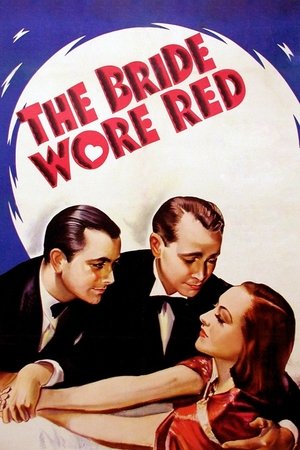 6.7
6.7The Bride Wore Red(en)
A poor singer in a bar masquerades as a rich society woman thanks to a rich benefactor.
 6.1
6.1Chou Deneiban SD Gundam Sangokuden Brave Battle Warriors(ja)
A Romance of the Three Kingdoms retelling using SD Gundams. (Source: Myanimelist.net)
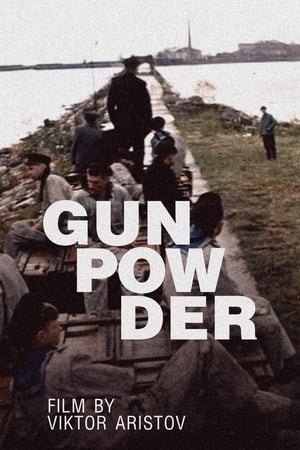 5.9
5.9Gunpowder(ru)
At the end of September 1941, Soviet artillery troops in besieged Leningrad realize that pretty soon they will fire their last shot, and after that the defense of the city will be doomed. The film is based on a true event: a small group of fearless soldiers transported a large supply of gunpowder through enemy lines to Leningrad.
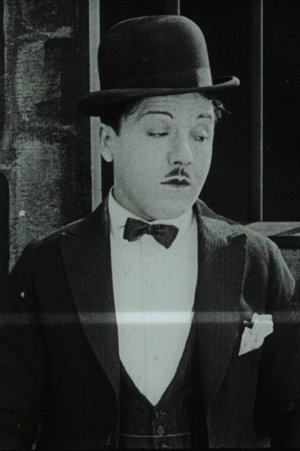 8.5
8.5Six A.M.(en)
After drinking all night, Monty and his friend try to get home, but it turns out to be not easy. The next day, Monty tries to win the heart of a theater actress.
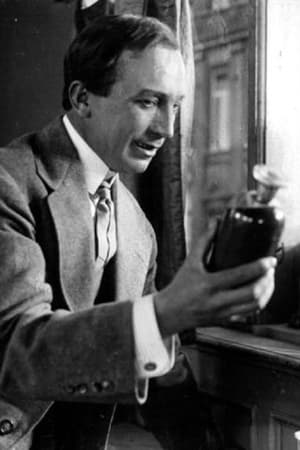 5.0
5.0The Love Potion(da)
The pharmacist Peter Pille and Colonel Sejrsberg's beautiful niece, Inger, are in love. Unfortunately, the Colonel is against the idea of an engagement and generally detests men who court young girls. Peter Pille finds out that the Colonel's negative attitude is due to jealousy and envy, because he himself has never really had luck with the ladies. Maybe a homemade love potion will do the trick? (stumfilm.dk)
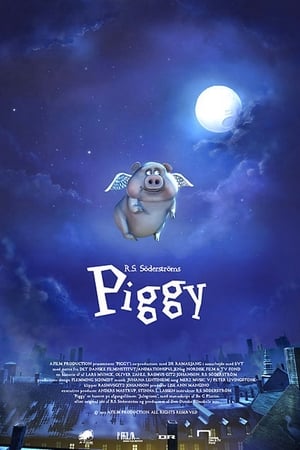 4.0
4.0Piggy(da)
On a farm in 1933, a piglet is sold to a family in Copenhagen. Piggy is a pig with greater appetite than brain and does not know that the good food he gets will turn him to the main dish of Christmas Eve. When the freedom fighter Monty appears, he explains it to Piggy. Together they plan their great escape.
 6.5
6.5Live a Little(sv)
Laura and Alexandra are full of excitement as they arrive in Warsaw, the first stop on their summer-long couchsurfing trip through Europe. New connections are quickly formed, and plans for parties are made, even though Laura at the same time are missing her boyfriend. However, the dynamics of the journey shift when, after a night of heavy drinking, Laura wakes up in a guy’s bed without any memories of what happened.
 7.5
7.5Naruto to Boruto: The Live 2019(ja)
“NARUTO to BORUTO THE LIVE 2019”, a special event for the 20th anniversary of the first publication of “NARUTO” series in Weekly Shonen Jump!! Featuring live performances by artists performing the theme songs of both “NARUTO” and “BORUTO: NARUTO NEXT GENERATIONS”, anime cast members reading original story episodes, and more.
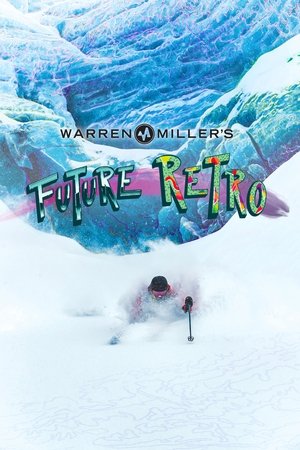 6.3
6.3Future Retro(en)
Warren Miller’s “Future Retro” will revel in 71 years of movie magic - with fresh stories and perspectives from across the globe, heroes from the glory days, and that retro energy keeping the winter dream alive.
Similar Movies
 5.0
5.0The Hawker Hurricane(en)
The Hawker Hurricane was the first fighter monoplane to join the Royal Air Force and the first combat aircraft adopted by that arm capable of exceeding 300 mph in level flight. The Hurricane shouldered the lion s share of Britain s defence during the Battle of Britain. This program portrays the history of this legendary aircraft which was to form an immortal partnership during the infamous battle.
 7.5
7.5Grizzly Man(en)
Werner Herzog's documentary film about the "Grizzly Man" Timothy Treadwell and what the thirteen summers in a National Park in Alaska were like in one man's attempt to protect the grizzly bears. The film is full of unique images and a look into the spirit of a man who sacrificed himself for nature.
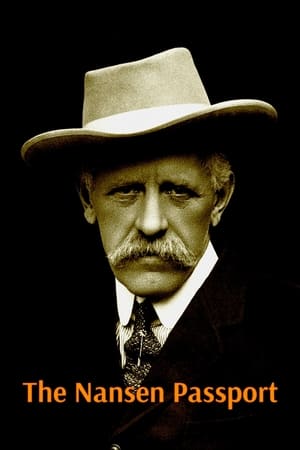 8.0
8.0The Nansen Passport(fr)
On July 5th, 1922, Norwegian explorer, scientist and diplomat Fridtjof Nansen creates a passport with which, between 1922 and 1945, he managed to protect the fundamental human rights as citizens of the world of thousands of people, famous and anonymous, who became stateless due to the tragic events that devastated Europe in the first quarter of the 20th century.
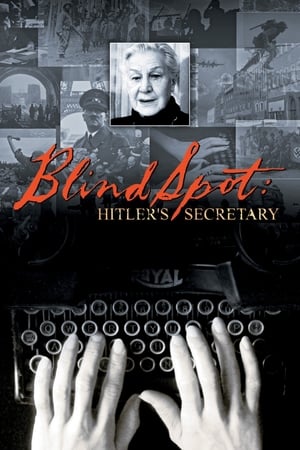 6.4
6.4Blind Spot: Hitler's Secretary(de)
Documentarians Andre Heller and Othmar Schmiderer turn their camera on 81-year-old Traudl Junge, who served as Adolf Hitler's secretary from 1942 to 1945, and allow her to speak about her experiences. Junge sheds light on life in the Third Reich and the days leading up to Hitler's death in the famed bunker, where Junge recorded Hitler's last will and testament. Her gripping account is nothing short of mesmerizing.
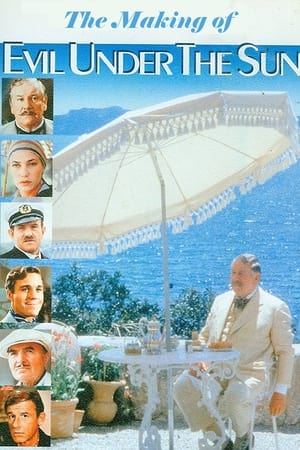 8.5
8.5The Making of Agatha Christie's 'Evil Under the Sun'(en)
Director Guy Hamilton and several of the stars of Agatha Christie's "Evil Under The Sun" walk you through the making of the film.
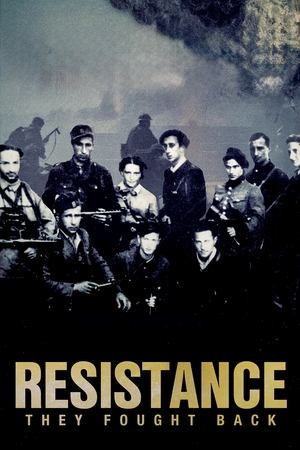 0.0
0.0Resistance: They Fought Back(en)
We’ve all heard of the Warsaw Ghetto Uprising, but most people have no idea how widespread and prevalent Jewish resistance to Nazi barbarism was. Instead, it’s widely believed “Jews went to their deaths like sheep to the slaughter.” Filmed in Poland, Lithuania, Latvia, Israel, and the U.S., Resistance – They Fought Back provides a much-needed corrective to this myth of Jewish passivity. There were uprisings in ghettos large and small, rebellions in death camps, and thousands of Jews fought Nazis in the forests. Everywhere in Eastern Europe, Jews waged campaigns of non-violent resistance against the Nazis.
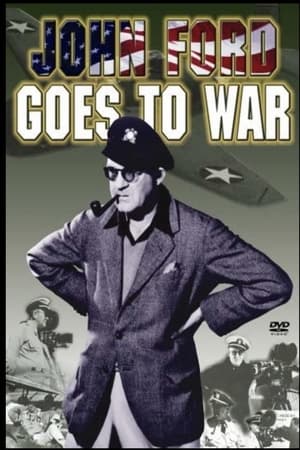 5.7
5.7John Ford Goes to War(en)
When World War II broke out, John Ford, in his forties, commissioned in the Naval Reserve, was put in charge of the Field Photographic Unit by Bill Donavan, director of the soon-to-be-OSS. During the war, Field Photo made at least 87 documentaries, many with Ford's signature attention to heroism and loss, and many from the point of view of the fighting soldier and sailor. Talking heads discuss Ford's life and personality, the ways that the war gave him fulfillment, and the ways that his war films embodied the same values and conflicts that his Hollywood films did. Among the films profiled are "Battle of Midway," "Torpedo Squadron," "Sexual Hygiene," and "December 7."
 6.9
6.9Oprah with Meghan and Harry: A CBS Primetime Special(en)
Winfrey speaks with Markle about everything from stepping into life as a Royal, marriage, motherhood, her philanthropic work and how she is handling life under intense public pressure. Later, the two are joined by Prince Harry as they speak about their move to the United States and their future hopes and dreams for their expanding family.
 5.5
5.5The Russian German War(en)
This is a rare look at one of the worst horror stories in the long infamous history of warfare. This series features captured German and Russian film footage, much of which has never been seen before. For decades the Cold War prevented us from looking closely at what really happened between the Russians and the Germans on the Eastern Front during World War II. More than a struggle between nations, it pitted maniacal tyrant against maniacal tyrant, evil ideology against evil ideology. The lives of tens of millions of human beings were consumed by its raging hatreds and appalling indignities. One in every ten Russians died. One in every four Poles died. Whole divisions of Italians, Romanians, Hungarians disappeared with barely a trace. An average of 17,800 people died on every single day and this, the war on the Russian German Front, lasted for 1,400 days. This series features captured German and Russian film footage, much of which has never been seen before.
Homo Cinematographicus(fr)
Homo Cinematographicus is a human species whose unit of measurement and point of reference is the cinema and its derivative, television. Filmed at the 1998 Cannes Film Festival, the film offers an unspecified number of statements, talking about memories and a thousand fragments of stories, titles and film scenes, the warp of a gigantic collective Chanson de geste.
 8.2
8.2Night and Fog(fr)
Filmmaker Alain Resnais documents the atrocities behind the walls of Hitler's concentration camps.
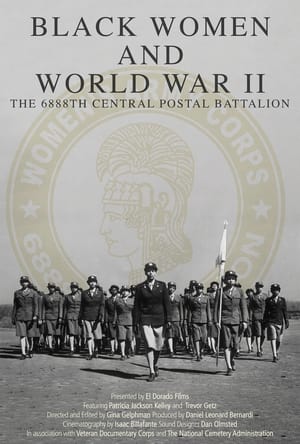 0.0
0.0Black Women and World War II: The 6888th Central Postal Directory Battalion(en)
In the midst of World War II, the 6888th Central Postal Directory Battalion, an all-female African-American unit, undertook the monumental task of sorting and delivering a massive backlog of mail for the U.S. military. Despite facing deplorable working conditions and the pervasive dual discrimination of race and gender, these women served their country with unbreakable determination and pride. Led by the formidable Major Charity Adams, they not only achieved their mission in half the expected time but also broke barriers, standing firm against inequality and inspiring future generations. Tragically overlooked for years, the story of the 6888th sheds light on a remarkable, untold chapter of American history, reflecting both the triumphs and injustices that shaped the nation's path towards civil rights. Their courage and resilience continue to resonate, a poignant reminder of the societal strides still needed to fully recognize and honor their invaluable contribution.
 5.3
5.3Enter the Anime(en)
What is anime? Through deep-dives with notable masterminds of this electrifying genre, this fast-paced documentary seeks to find the answers.
 5.2
5.2Tubular Bells: The Mike Oldfield Story(en)
Documentary about the musician Mike Oldfield, whose 1973 album Tubular Bells launched the Virgin record label and became the biggest selling instrumental album of all time.
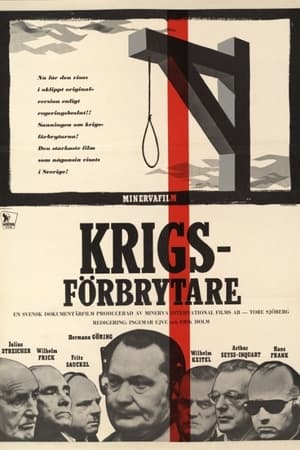 10.0
10.0Secrets of the Nazi Criminals(sv)
Documents the major trial of the Nazi war criminals and the violent acts that they were accused of.
Hitler's Forgotten Victims(en)
The story of black and mixed race people in Nazi Germany who were sterilised, experimented upon, tortured and exterminated in the Nazi concentration camps. It also explores the history of German racism and examines the treatment of Black prisoners-of-war. The film uses interviews with survivors and their families as well as archival material to document the Black German Holocaust experience.
 7.6
7.6Hitler's Battle Against the Press(de)
As early as 1920, the journalists of the "Münchener Post" recognized the danger posed by Adolf Hitler. Consistently and boldly they wrote about National Socialism. The brave journalists and their newspaper are almost forgotten today. A single book has been published about them - in Brazil.
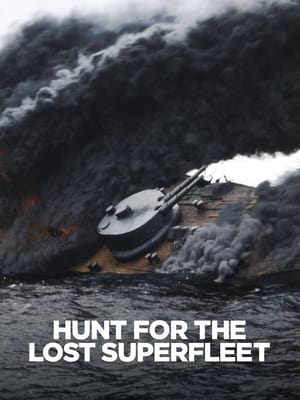 0.0
0.0Hunt For the Lost Superfleet(en)
The Battle of the Falklands, between a Royal Navy task force and five German cruisers, was one of the most dramatic and bloodiest sea conflicts of World War I. When the smoke cleared, four of the German ships had sunk, including the flagship and pride of the German fleet, the SMS Scharnhorst. For decades, none of the downed vessels were ever found. Now, more than 100 years later, maritime archaeologist Mensun Bound and his team are searching for the ships and the secrets they hold. It's a race against time and the raging South Atlantic Ocean.
 0.0
0.0Tokyo Black Hole: Year Zero in Post-WWII Japan(ja)
World War II comes to an end. Tokyo is a destroyed place, without law, driven by hunger and greed. From over 100,000 pages of declassified CIA documents and hours of newly discovered footage, recorded by American occupation charges and private individuals, the documentary shows Tokyo during this crucial year, Year Zero. Observed from the point of view of a young man who finds himself transported in time, the NHK documentary uses color images and state-of-the-art video techniques to reveal how a desperate population is published as the foundations of today's megalopolis.
